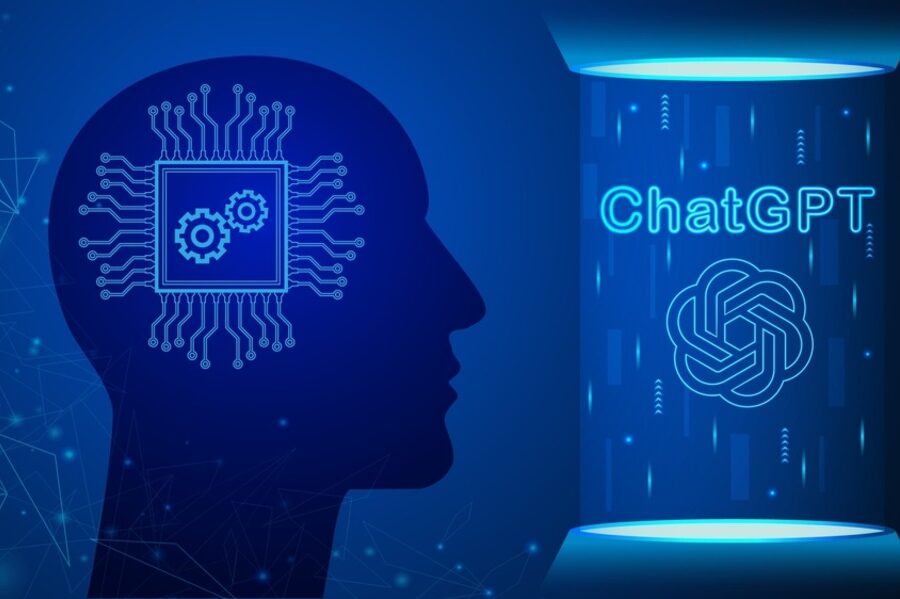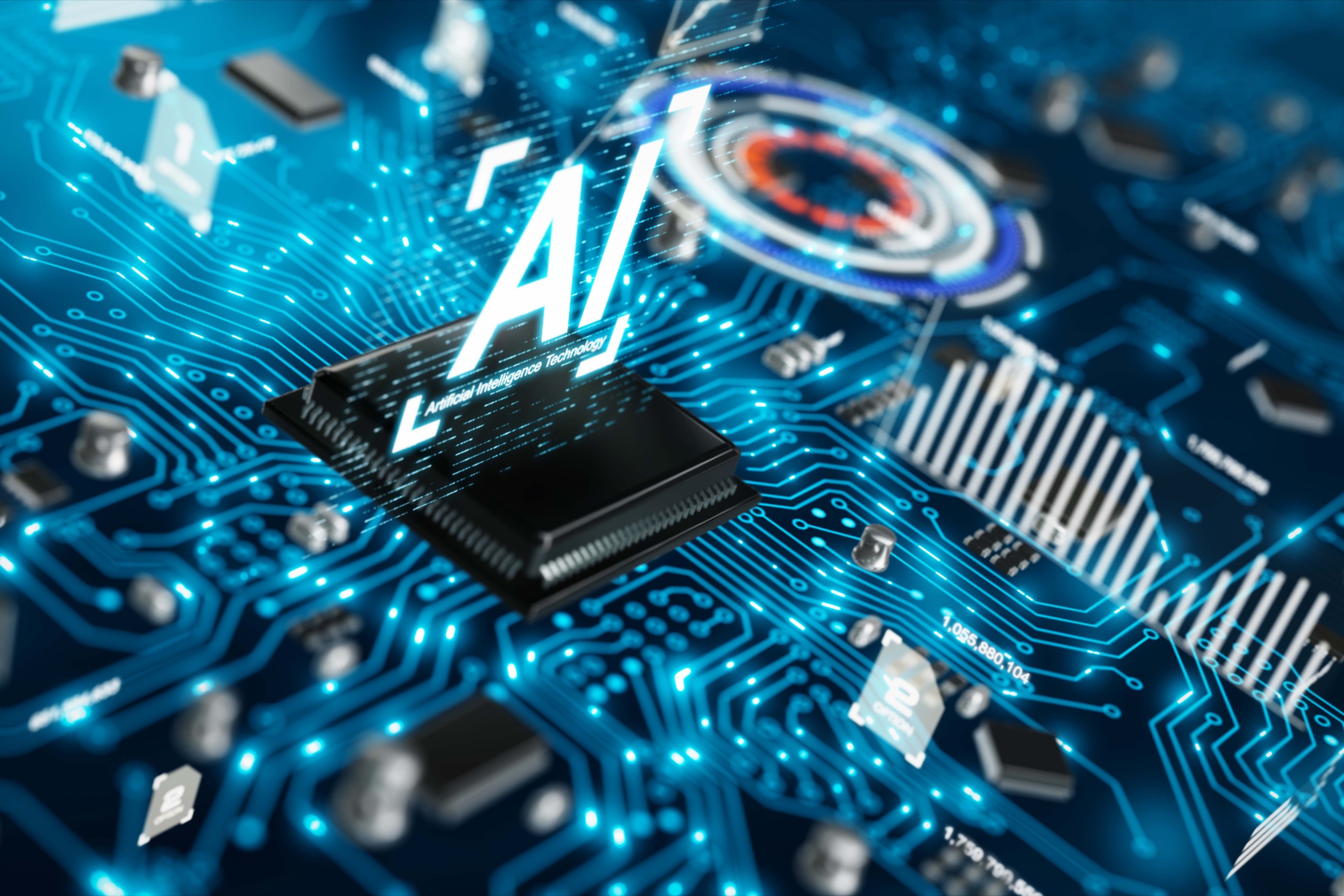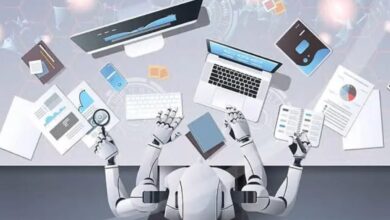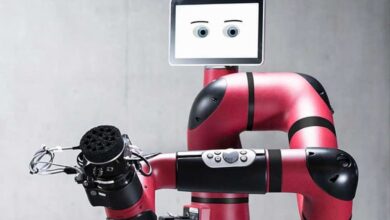Artificial Intelligence’s Impact – Mass Job Losses Experts decipher the roles and obligations that ChatGPT may take advantage of.
ChatGPT technology is still in its early stages and won't have a significant influence on the workers market for positions at the next level for another seven to ten years

Development of ChatGPT, the concern of artificial intelligence (AI) replacing human jobs has been revived. A former pupil forced the highly developed AI language model to produce an essay on social policy and forwarded it for grading to a professor at a Russell Group institution in January.
As a result, the model “passed” the test. However, according to analysts, ChatGPT technology is still in its early stages and won’t have a significant influence on the worker’s market for positions at the next level for another seven to ten years.
According to Aditya Narayan Mishra, Managing Director and Chief Executive Officer of CIEL HR Services, “ChatGPT has the potential to disrupt some businesses, but it is unlikely to instantly create job losses.” Based on its potential, ChatGPT has a decent probability of displacing some.
AI’s effects on future work positions
There is no question in our minds that practically every sector and aspect of life in the modern world has been impacted by technology in one way or another. Although it seems to be in their hands, we are unsure of how much control they have over it. There is always more than one side to a story, as the cliché goes.
Regarding technology as well, there is no exception to this law. There are two schools of thinking about the use of artificial intelligence as a tool for increasing employment. Others see it as a tool that can help create more human employment, while some regard it as a danger to human jobs.
In my opinion, robots and artificial intelligence are not out to deprive us of our livelihood. Instead, they are there to in some way ease our lives. Robots and artificial intelligence will give humans a lot of chances in the future. According to the projection and the study, even though nearly 1.7 million jobs have been lost to automation since 2000, artificial intelligence is predicted to produce 97 million new employment by 2025, even though almost 1.7 million jobs have been lost to it since 2000.
In essence, you can now start to understand how technology may truly be used by humans as a tool to benefit them in the long term and not simply as a bad thing. Artificial intelligence will undoubtedly be the main force shortly, in my opinion. In the not-too-distant future, it will have a significant influence on the world as we currently know it.
Some individuals become quite enthusiastic when they discover something new, but others have a fairly dismal or doomy picture in their heads when they are learning about the same event. This is just one example of the many differences that occur between people. We must remain confident in our grasp of the reality that AI will not be able to completely replace human labor in the workplace.
There are a handful of specialized profiles that call for a lot of imagination, empathy, and last-minute complicated political frameworks. Robots or artificial intelligence cannot, under any circumstances, replace human professionals such as educators, authors, designers, lawyers, social workers, defense attorneys, and healthcare providers. Shortly, numerous areas, including all those listed above, can benefit from the technical breakthroughs of artificial intelligence. These, however, are unable to duplicate the human element or emotional connection that these areas demand.
Since we go towards the era of digitization, people feel a need to collaborate with a new environment. Of course, we will need to accomplish this with the aid of technology, as the existence of technology in our everyday lives necessitates that we adjust to it. There is a tremendous desire for the advantages AI may provide the workplace. Despite this, it shouldn’t alter the reality that the human touch will always remain in both demand and fashion.
Experts predict that artificial intelligence will be a great benefit to humanity. Humans may be able to spend less time on laborious chores that are a part of their overall duties. The resource should be able to concentrate on comp projects. He will be able to serve the employer and resource in the best possible way as a result. Life is full of change, and that is a reality. We must be ready to adjust to the effects of change since we cannot prevent them. We must learn to accept that things will occasionally change if we want to live.
Significant change is on the way.
A better, more evolved, new world is on its way, and we need to pull our socks up because it’s time for a significant transformation. It’s just a matter of time until we start doing instead of complaining. There are several sacrifices required in the context of re-adjustments. It is completely unfair and foolish to fail to plan for the future and instead live in the now. Furthermore, a person’s capacity to express kindness, compassion, understanding, and love for one another will always be appreciated as an asset not only in the present but also in the future.
Furthermore, a person’s capacity to express kindness, compassion, understanding, and love for one another will always be appreciated as an advantage not only now but also in the future. No technology can ever replace the power of compassion, and it will always win out above all other considerations. Artificial intelligence research is increasing at an exponential rate. Almost every market sector employs a diverse range of applications. These include, in various ways, autonomous automobiles, education, infrastructure, defense, health, social security, cancer detection, and the construction of agricultural yield models.
It is also worth noting that several platforms provide degrees and certificates in AI, Machine Learning, and Deep Learning. However, there are extremely few competent candidates for these roles. There is now a lack of searchers because of a dearth of competent personnel. As a result, there has been a haphazard recruiting procedure, which has delayed the smart integration of intelligent robots into the workplace.
Because all forms of occupations encounter fierce competition, machine learning and artificial intelligence jobs confront far less competition than other types of jobs. There are a growing number of specialized engineering jobs on the market, but there are still a large number of open vacancies. The paucity of competent persons to fill these professions is another element contributing to the market’s shortage of skilled workers.
The scope of AI research is broadening. From driverless automobiles to models for cancer diagnosis, the application cases touch practically every area. Similarly, several platforms provide degrees and certificates in AI, Machine Learning, and Deep Learning all at the same time.
However, the number of people working in these industries is quite low. AI will establish a distinct dividing line of tasks that can be mastered if they are properly trained and taught, which will outweigh the danger to unskilled employment. Even though artificial intelligence has taken over many industries, there are still numerous employment available if you continue to study and upskill yourself.
According to World Economic Forum research, machines will automate 50% of all workplace operations by 2025, up from 29% presently. According to the research, this is an increase from 29% today. By 2022, roughly half of the enterprises in the industry are likely to have significantly fewer employees. However, automation is likely to result in the development of new employment in the whole industry at the same time.
World Economic Forum research
According to World Economic Forum research, machines will automate 50% of all workplace operations by 2025, up from 29% presently. According to the research, this is an increase from 29% today. By 2022, roughly half of the enterprises in the industry are likely to have significantly fewer employees. However, automation is likely to result in the development of new employment in the whole industry at the same time.
The amount of necessity for various professions in different places tends to range greatly, which is one of the most relevant factors. While there is a lot of hype around artificial intelligence replacing employment, much of this is because the types of occupations being considered to have a lot to do with the kind of jobs that will be replaced. True, certain components of work can be automated, but there are some aspects of a job that cannot be mechanized. There is a good likelihood that artificial intelligence can and will become a component of future occupations in a variety of ways.
Entry-level and junior positions
According to Mishra, ChatGPT poses a possible threat to positions at the entry and junior organizational levels. Jobs like software tester, help desk analyst, telesales, customer support, content producer, secondary research, and design may be impacted, he noted. According to Mishra, ChatGPT may minimize the number of persons needed to complete a task in some jobs. Nevertheless, to handle and analyze the enormous quantity of data generated every day, additional employment will be created in the fields of education, media, healthcare, data processing, research, innovation, and so forth.
Jobs that include routine activities
Human resource (HR) workers may focus on strategic and high-value operations by automating repetitive procedures with ChatGPT technology, which can help simplify HR processes. According to Sarvesh Agrawal, founder, and CEO of Internshala, a career-tech platform, “for instance, to execute several duties like answering employee inquiries, formulating HR rules, writing job descriptions, analyzing databases, conducting employee surveys, etc., would require multiple people. He said that by using ChatGPT, fewer experts could be able to complete the same jobs as effectively.
S Pasupathi, Chief Operating Officer of HirePro, a supplier of recruitment automation and assessment solutions, thinks ChatGPT may help businesses by providing email writing assistants, data entry clerks, chatbots, conversational UI (user interface) developers, and particularly content writers.
Tasks with little room for creativity
According to Anuj Agarwal, the founder, and CEO of the recruiting company Zyoin, the influence of these technologies on the job market depends on how widely they are used in different sectors. Meanwhile, he continued, “it is straightforward to argue that professions requiring the execution of simple tasks would be harmed, but jobs requiring sophisticated human abilities, such as creativity, inventiveness, empathy, and critical thinking, will not be touched.” As a result of AI technologies accomplishing the same task in a matter of minutes, employment for creating social media posts and graphics is in danger in this situation.
edited and proofread by nikita sharma




